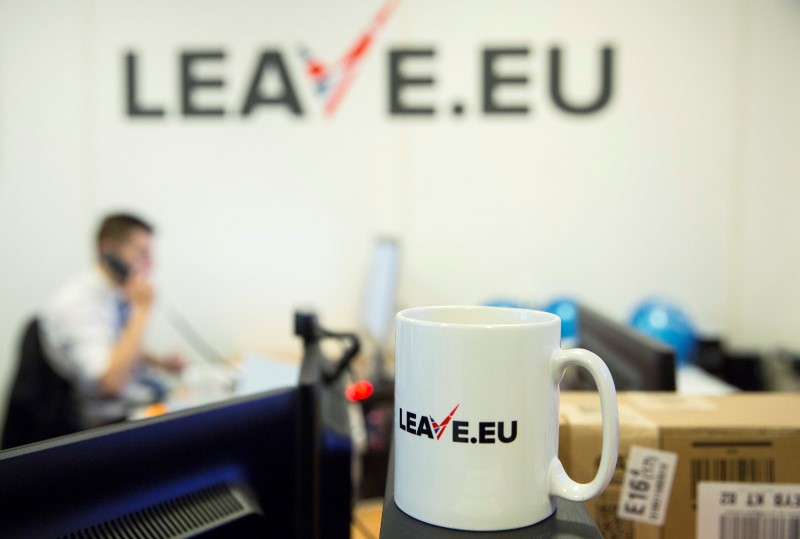By David Milliken
LONDON (Reuters) - Britain would be richer if it left the European Union, a group of British economists said on Thursday, in contrast to warnings from leading global institutions of a big hit to output and living standards.
Less than two months before June's EU membership referendum, the economists said concerns about a hit to Britain's economy from lower exports were overblown and the country would benefit from scaling back EU-backed labour laws.
Patrick Minford, a professor of economics at Cardiff University, said that around 10 years after leaving the EU, Britain's economy would be at least 4 percent larger than otherwise.
The boost would come from lower tariff barriers for imports as well as a cull of regulation.
Minford said Britain should not bother trying to strike a trade deal with the EU and should instead allow its imports and exports to be governed by the tariffs agreed at the World Trade Organisation.
While those are low for most products, the EU's external tariff on cars stands at nearly 10 percent, raising questions about the potential impact of Brexit on an industry which employs around 800,000 people in Britain.
Last week, Britain's finance ministry said the economy would be 7.5 percent smaller by 2030 if it adopted the position favoured by Minford.
He said the finance ministry and other bodies such as the Organisation for Economic Co-operation and Development and the International Monetary Fund overestimated the benefit of trade and trade deals.
Deals with smaller countries did not make "a fig of difference" to Britain as a whole, Minford said, while evidence of links between trade, foreign investment and productivity cited by the finance ministry were due to other factors, or were based on comparisons with less developed countries than Britain.
"There is no need for us to go off chasing a million trade deals with the rest of the world. They are irrelevant," he said.
By leaving the EU and unilaterally scrapping tariffs on imports of food and manufactured goods, Britain would be able to reduce average prices by 8 percent, he said.
Farmers, as well as car manufacturers, would suffer from lower exports to the EU, Minford said. But the economy as a whole would benefit from being able to scrap EU regulation on workers' rights and climate change, and focus on services where it had a competitive advantage, he added.
Britain Stronger In Europe, the main campaign group for a "Remain" vote in the June 23 referendum, said Minford was "clueless" to accept a decline in manufacturing as a price of Brexit and had advocated the "worst of all worlds".
In a report published on Wednesday, the OECD said it remained unclear whether a British government, after a Brexit vote, would want to scale back rules that aim to protect workers and are supported by the country's trade union movement.
Minford was speaking alongside Roger Bootle, who heads consultancy Capital Economics, and Gerard Lyons, economic adviser to leading "Out" campaigner London Mayor Boris Johnson.
Their views are at odds with most British academic economists, who overwhelmingly viewed a possible Brexit as damaging to the British economy according to a show of hands at their annual conference last month.

A Reuters poll of financial market economists based in Britain and Europe also found most believed the economy would be damaged by leaving the EU.